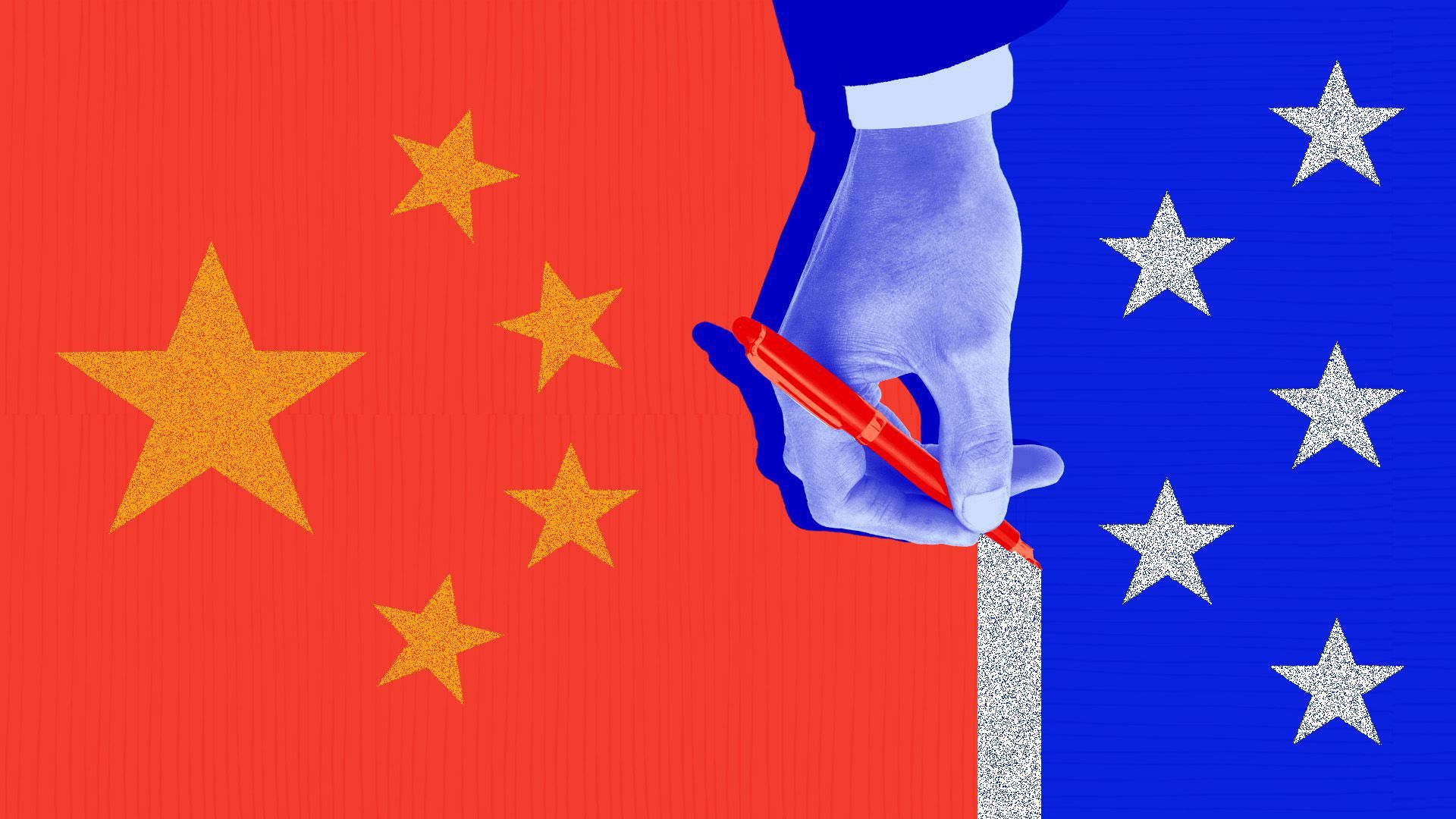SEC clamps down on Chinese IPOs
Add Axios as your preferred source to
see more of our stories on Google.

Illustration: Sarah Grillo/Axios
Chinese companies will be unable to go public in the U.S. unless they make new risk disclosures, according to a statement released Friday morning from SEC chair Gary Gensler.
Why it matters: Chinese companies, and tech startups in particular, are already under growing pressure from their own government. Now they're also getting squeezed by U.S. officials.
How we got here: SEC commissioner Allison Lee said earlier this week that Chinese companies listed in the U.S. must disclose the risk of Chinese government interference in their business, following its punitive actions against companies like Didi.
- Just hours before Gensler's statement, Reuters reported: "The SEC has asked companies not to submit any registrations for the issuance of securities until it gives them specific guidance on how to disclose the risks they face in China."
What Gensler said: Chinese companies seeking to register in the U.S. must disclose if they: "Received or were denied permission from Chinese authorities to list on U.S. exchanges; the risks that such approval could be denied or rescinded" and if such approval was rescinded.
- Such companies also must allow the Public Company Accounting Oversight Board to inspect the issuer's public accounting firm within three years. If PCAOB is unable to do so, the company may be delisted.
- He also "asked staff to engage in targeted additional reviews of filings for companies with significant China-based operations."
What it could mean, at least for now: Delayed or blocked U.S. IPOs for Chinese companies, several of which are in the post-Labor Day pipeline. Ditto for secondary stock offerings for already-public Chinese companies.
- It's less clear if this would affect Chinese companies going public in the U.S. via SPAC. The SEC registration process on such deals is technically for the SPAC, not for the company being acquired.
- For context, Chinese companies have raised nearly $13 billion so far in 2021 via U.S. stock listings, an all-time record.
The bottom line: Chinese companies, and tech startups in particular, have long been supported by both local officials and U.S. markets. Now their friends have become foes.
